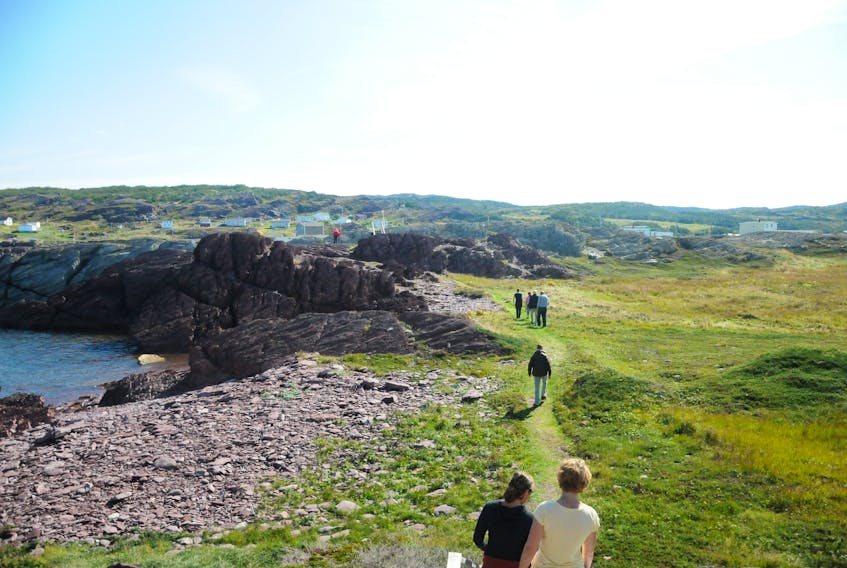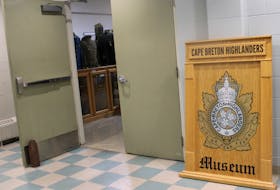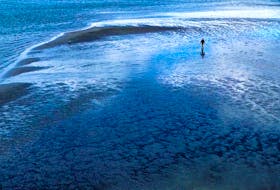ELLISTON, N.L. — The public needn’t fear any changes or regulations coming to the Bonavista Peninsula area if the Discovery Aspiring Geopark Inc. (DAGI) becomes certified as a UNESCO Global Geopark — because there won’t be any.
In a series of public information sessions held this spring, DAGI helped put locals’ minds at ease when it comes to rumours about limitations to trails, hunting, fishing or other activities in the region. They say nothing will change for anyone because of the Geopark.
“We’re not separating or cordoning off land, and saying that you can’t do the recreational activities that you enjoy as citizens within the area,” explained Amanda McCallum, DAGI project manager, at the meeting in Elliston.
“All those things that you like to do: get out to fish, berry pick, beachcomb, swim, hike, hunt, trap, snowmobile, use an ATV, cut wood with a permit … All of those social activities, you can continue to do so.”
Even regarding the areas which have fossils, there will be no additional regulations implemented protecting these sites, because they already exist — having been implemented to protect the precious fossils years ago.
In fact, McCallum outlined many ways the Geopark can benefit those in communities, including regional partnerships, promotion, improved economic development, growth in the business community and pride for the heritage, culture and environment of the area.
DAGI held community engagement sessions in King’s Cove in March, Trinity in April, Elliston on May 1, and will have one more in Port Union on June 5 at The Coaker Foundation’s Factory.
Many of the attendees at these sessions included those who may collaborate with DAGI in the future for mutual benefits.
McCallum added that even industry processes are unaffected, including mineral exploration—which has all the same processes that would be in place if there were no UNESCO Geopark.
With existing businesses and organizations, McCallum made it clear they’re looking to work in collaboration instead of competing with them. In fact, in the future, there is an opportunity to provide local products which are connected to the place itself. And while the Geopark is prohibited from the involvement of the sale of raw mineral materials, this doesn’t include jewelry and other gem sales which have been processed for market.
And the Geopark is not just about geology—while the science of the environment will be a focal point—the presentation and education will also focus on the cultural heritage, folklore and the links between the communities and the Earth. Case in point, she says, is the role of root cellars in Elliston as a way to preserve subsistence-grown food.
This all comes ahead of a site visit sometime this summer, which will then see a decision made in September. The results will either be either be “accept”, “reject” or “defer.”
And then, the ultimate decision will be announced at a conference in South Korea in April of 2020.
If approved, it will be everything the group has worked for over decades to make the Geopark a “catalyst for increased tourism,” in addition to all the heritage, education and developmental benefits.
Information about UNESCO Global Geoparks
UNESCO stands for United Nations Educational, Scientific and Cultural Organization.
Aside from Global Geoparks, there are also UNESCO Biosphere Reserves (686 worldwide, 18 in Canada) and World Heritage Sites (1,092 in the world, 19 in Canada).
There are currently 147 Geoparks designated throughout the world, with three confirmed Geoparks in Canada—with many more in the process of becoming confirmed, like Discovery.
The three existing Geoparks in Canada are Stonehammer in N.B., Tumbler Ridge in B.C. and Perce in Que.
In addition, there are already four UNESCO World Heritage Sites in Newfoundland and Labrador—L’Anse-Aux-Meadows National Historic Site, Red Bay Basque National Historic Site, Gros Morne National Park and Mistaken Point Ecological Reserve.
While Biospehere reserves and heritage sites are put forward for UNESCO consideration on a federal level, Geoparks are community driven.
As a result, the DAGI board of members, volunteers and workers have done an extreme amount of planning over the years to help make a UNESCO Geopark a reality on the Bonavista Peninsula.
Twitter: @jejparsons









